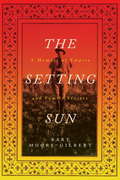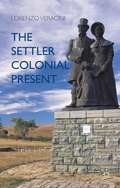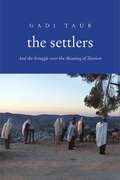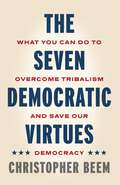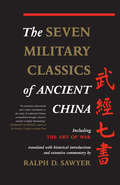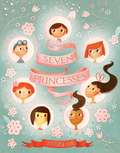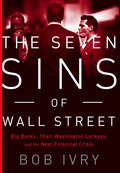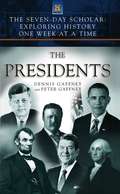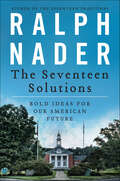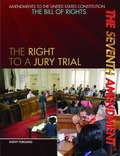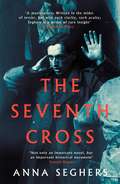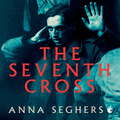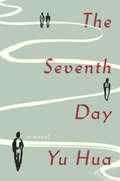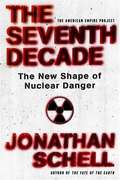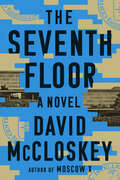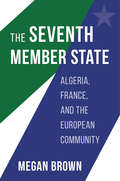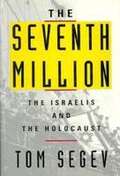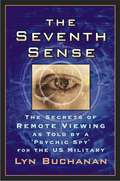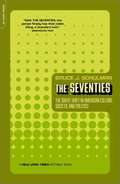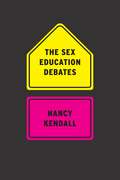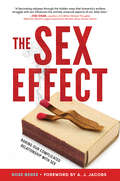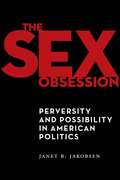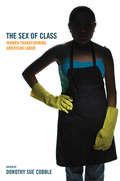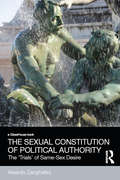- Table View
- List View
The Setting Sun
by Bart Moore-Gilbert"I've always had difficulty imagining my father as a policeman. He seemed most himself in the informal setting of safari life, clothes disheveled, sometimes not shaving for days. So why did he join the Indian Police, with its rigid hierarchies and complex protocols?"Setting Sun is the story of the dying days of an empire, combined with gripping family history, in an extraordinary literary voyage across India.When a letter from an Indian historian arrives out of the blue, informing leading academic Moore Gilbert that his beloved, deceased father, a member of the Indian Police before Independence, partook in the abuse of civilians, Moore Gilbert's world is shaken as his cherished childhood memories are challenged. He sets out in search of the truth--discovering much about the end of empire, the state of India today, and whether his father, as one of the many characters on his quest claims, really was a terrorist.Crisscrossing western India, and following leads from bustling Mumbai to remote rural scenes, Moore-Gilbert finally pieces together the truth, ultimately discovering that the same story links the past with the present, colonial India with its modern incarnation, terrorism through the ages and father with son.
The Settler Colonial Present
by Lorenzo VeraciniThe Settler Colonial Present explores the ways in which settler colonialism as a specific mode of domination informs the global present. It presents an argument regarding its extraordinary resilience and diffusion and reflects on the need to imagine its decolonisation.
The Settlers: And the Struggle over the Meaning of Zionism
by Gadi TaubThe controversy over settlements in the occupied territories is a far more intractable problem for Israel than is widely perceived, Gadi Taub observes in this illuminating book. The clash over settlement is no mere policy disagreement, he maintains, but rather a struggle over the very meaning of Zionism. The book presents an absorbing study of religious settlers' ideology and how it has evolved in response to Israel's history of wars, peace efforts, assassination, the pull-out from Gaza, and other tumultuous events. Taub tracks the efforts of religious settlers to reconcile with mainstream Zionism but concludes that the project cannot succeed. A new Zionist consensus recognizes that Israel must pull out of the occupied territories or face an unacceptable alternative: the dissolution of Israel into a binational state with a Jewish minority.
The Seven Democratic Virtues: What You Can Do to Overcome Tribalism and Save Our Democracy
by Christopher BeemThe insurrection of January 6, 2021, demonstrated conclusively that tribalism in the United States has become dangerous. The “other side” is no longer viewed as a well-intentioned opponent but as an existential threat. If we don’t change course, American democracy is far from assured.This book outlines specific steps that average citizens can take to back the nation away from the brink. Instead of looking to political leaders, institutions, or policy for solutions to extreme partisanship, Christopher Beem argues that concerned citizens can and must take up the cause. He spells out seven civic practices we can all follow that will help us work against our antidemocratic tendencies and reorient the nation toward the “more perfect union” of our Founders. Beem’s road map to restore our democracy draws on thinkers from Aristotle and Thomas Aquinas to James Madison, Hannah Arendt, Abraham Lincoln, and Franklin Delano Roosevelt. Empathetic and eminently reasonable, The Seven Democratic Virtues presents practical advice for what each of us can do to change the political discourse and save our democracy. This is necessary reading for our politics today—and in the future.
The Seven Military Classics Of Ancient China
by Ralph D. SawyerThe Seven Military Classics is one of the most profound studies of warfare ever written, a stanchion in sinological and military history. It presents an Eastern tradition of strategic thought that emphasizes outwitting one's opponent through speed, stealth, flexibility, and a minimum of force--an approach very different from that stressed in the West. Safeguarded for centuries by the ruling elite of imperial China, even in modern times these writings have been known only to a handful of Western specialists.This volume contains seven separate essays, written between 500 BCE and 700 CE, that preserve the essential tenets of strategy distilled from the experience of the most brilliant warriors of ancient China.
The Seven Princesses
by Smiljana CohOnce upon a time, there were seven princess sisters who did everything together, from horseback riding to jumping in royal leaf piles to throwing legendary piñata parties. But one day, they had the biggest fight in the entire history of princess fighting. There was no worse sound than the sound of this fight. Will the sisters ever find a way to fill their kingdom with sounds of laughter and playing again?Princesses of all sizes will royally delight in this modern-day fairy tale of sibling rivalry, adventure, and unconditional sisterly love.
The Seven Sins of Wall Street: Big Banks, their Washington Lackeys, and the Next Financial Crisis
by Bob IvryWe all know that the financial crisis of 2008 came dangerously close to pushing the United States and the world into a depression rivaling that of the 1930s. But what is astonishing-and should make us not just afraid but very afraid-are the shenanigans of the biggest banks since the crisis. Bob Ivry passionately, eloquently, and convincingly details the operatic ineptitude of America's best-compensated executives and the ways the government kowtows to what it mistakenly imagines is their competence and success. Ivry shows that the only thing that has changed since the meltdown is how too-big-to-fail banks and their fellow travelers in Washington have nudged us ever closer to an even bigger economic calamity. Informed by deep reporting from New York, Washington, and the heartland, The Seven Sins of Wall Street, like no other book, shows how we're all affected by the financial industry's inhumanity. The transgressions of "Wall Street titans" and "masters of the universe" are paid for by real people. In fierce, plain English, Ivry indicts a financial industry that continues to work for the few at the expense of the rest of us. Problems that financiers deemed too complicated to be understood by ordinary folks are shown by Ivry to be financial legerdemain-a smokescreen of complexity and jargon that hide the bankers' nefarious activities. The Seven Sins of Wall Street is irreverent and timely, an infuriating black comedy. The Great Depression of the 1930s moved the American political system to real reform that kept the finance industry in check. With millions so deeply affected since the crisis of 2008, you'll finish this book asking yourself how it is that so many of the nation's leading financial institutions remain such exasperating problem children.
The Seven-Day Scholar: The Presidents
by Dennis Gaffney Peter Gaffney"A bite of history a day, all year long . . ."Flawless storytelling, expert research, and intriguing, one-page essays make The Seven-Day Scholar: The Presidents perfect for history buffs. The Presidents addresses formative moments in the lives of the presidents, crucial political decisions, little-known facts, and insights into the intriguing individuals Americans have selected to lead our country. Each chapter includes seven related narrative entries-one for each day of the week. The book explores many fascinating facts and issues about the presidents, including: Did Washington really enjoy dancing? Why did President Jefferson avoid speaking in public? Why did Lincoln crack down on civil liberties? Why did Eisenhower fight against big defense budgets? How responsible was Reagan for the end of the Cold War? As well as covering each president, the book includes chapters on the Best and Worst Writers and Speakers; Most Controversial Elections; Scandals; Most Controversial Foreign Policy Decisions; The Peacemakers; First Ladies; The Best and Worst Presidents; and more. Entries also include follow-up resources where curious readers can learn more.Readers can sweep through the book from beginning to end, or use it as a reference book, periodically exploring topics and presidents in which they are interested.
The Seventeen Solutions: Bold Ideas for Our American Future
by Ralph NaderConsumer advocate, activist, humanitarian, and former presidential candidate Ralph Nader is arguably the most provocative and important progressive voice in America today—a fearless reformer whom The Atlantic named one of the 100 most influential figures in American history. In these troubling times of intractable fiscal and social distress, Nader offers a new program to help rescue America: The Seventeen Solutions. His powerful, paradigm-shifting proposals address some of the most pressing concerns in our country today—from corporate crime to tax reform to health care and housing—and they should find a receptive audience not only among liberals, progressives, disillusioned Democrats, Rachel Maddow fans, and Occupy Wall Street supporters, but all concerned Americans.
The Seventh Amendment: The Right To A Jury Trial (Amendments To The United States Constitution: The Bill Of Rights)
by Kathy FurgangWhile jury trials in criminal cases are recognized as vitally important to safeguarding the Constitutional rights of the accused, the right to a jury trial in civil cases is a less understood, celebrated, and valued right. This book is an invaluable reminder of just how important the Seventh Amendment is to the promotion and preservation of fairness and justice in America. By entrusting a jury of ordinary and impartial citizens to decide the outcome of lawsuits, the framers of the Constitution and Bill of Rights removed the power from the judges, who could potentially be swayed and corrupted. The Seventh Amendment levels the playing field, guaranteeing that a citizen's voice and interests carry as much weight as that of a wealthy individual, major corporation, or powerful government. The historical context that motivated the drafting and passage of this amendment is discussed, as is the evolution of civil law, jury trials, and the application of the Seventh Amendment in American history, from colonial times to the present. Contemporary, straight from the headlines cases-including Toyota's recent woes-illustrate the relevance of the Seventh Amendment and its application to cases involving consumer protection, environmental cleanup, medical malpractice, and corporate wrongdoing.
The Seventh Cross (Virago Modern Classics #779)
by Anna Seghers'At once a suspenseful manhunt story and a knowing portrait of the perils of ordinary life in Hitler's Germany, The Seventh Cross is not only an important novel, but an important historical document. This new, unabridged translation is a genuine publishing event' - Joseph Kanon, author of 'The Good German' and 'Leaving Berlin''A masterpiece. Written in the midst of terror, but with such clarity, such acuity; Seghers is a writer of rare insight' RACHEL SEIFFERT author of A Boy in WinterSeven prisoners escape from Westhofen concentration camp. Seven crosses are erected in the grounds and the commandant vows to capture the fugitives within a week. Six men are caught quickly, but George Heisler slips through his pursuers' fingers. It becomes a matter of pride to track him down, at whatever cost.Who can George trust? Who will betray him? The years of fear have changed those he knew best: his brother is now an SS officer; his lover turns him away. Hunted, injured and desperate, time is running out for George, and whoever is caught aiding in his escape will pay with their life.The Seventh Cross is one of the most powerful and influential novels of the twentieth century, a tense thriller that helped to alert the world to the grim realities of Nazi Germany.'It was [Seghers] who taught my generation and anyone who had an ear to listen after that not-to-be-forgotten war to distinguish right from wrong. The Seventh Cross shaped me; it sharpened my vision' GUNTER GRASS'A fascinating insight into life in pre-war Nazi Germany just as the horrors of the Nazi regime were beginning to unfold. This is an important novel, as much for its picture of German society as for its insight into the psyche of ordinary people confronting their personal fears and mixed loyalties' SIMON MAWER, author of The Glass RoomIn The Seventh Cross, Seghers's aim was to write, 'A tale that makes it possible to get to know the many layers of fascist Germany through the fortunes of a single man.' She had four copies of the manuscript: one was destroyed in an air raid; a friend lost the second copy while fleeing the Nazis; another was found by the Gestapo; only the fourth copy survived, which, fortunately, she sent to her publisher in America just before she escaped Nazi-occupied France. Published in 1942, The Seventh Cross was an immediate bestseller and was the basis for an MGM film starring Spencer Tracy in 1944. It has been translated into more than 40 languages.Margot Bettauer Dembo's expert new translation makes the complete text of this great political novel available in English for the first time.
The Seventh Cross (Virago Modern Classics #779)
by Anna SeghersA rediscovered German classic novel from 1942, never before published in the UK, The Seventh Cross is both a gripping escape story and a powerful novel of resistance. 'At once a suspenseful manhunt story and a knowing portrait of the perils of ordinary life in Hitler's Germany, The Seventh Cross is not only an important novel, but an important historical document. This new, unabridged translation is a genuine publishing event' JOSEPH KANON, author of The Good German and Leaving Berlin'A masterpiece. Written in the midst of terror, but with such clarity, such acuity; Seghers is a writer of rare insight' Rachel Seiffert, author of A Boy in WinterSeven prisoners escape from Westhofen concentration camp. Seven crosses are erected in the grounds and the commandant vows to capture the fugitives within a week. Six men are caught quickly, but George Heisler slips through his pursuers' fingers and it becomes a matter of pride to track him down, at whatever cost.Who can George trust? Who will betray him? The years of fear have changed those he knew best: his brother is now an SS officer; his lover turns him away. Hunted, injured and desperate, time is running out for George, and whoever is caught aiding his escape will pay with their life.The Seventh Cross powerfully documents the insidious rise of a fascist regime - the seething paranoia, the sudden arrests, the silence and fear.'A fascinating insight into life in pre-war Nazi Germany just as the horrors of the Nazi regime were beginning to unfold. This is an important novel, as much for its picture of German society as for its insight into the psyche of ordinary people confronting their personal fears and mixed loyalties' Simon Mawer, author of The Glass Room'It was [Seghers] who taught my generation and anyone who had an ear to listen after that not-to-be-forgotten war to distinguish right from wrong. The Seventh Cross shaped me; it sharpened my vision' - Gunter GrassThe Seventh Cross was written by one of the most important German writers of the twentieth century. Her aim was to write, 'A tale that makes it possible to get to know the many layers of fascist Germany through the fortunes of a single man.' She had four copies of the manuscript: one was destroyed in an air raid; a friend lost the second copy while fleeing the Nazis; another was found by the Gestapo; only the fourth copy survived, which, fortunately, she sent to her publisher in America just before she escaped Nazi-occupied France. Published in 1942, The Seventh Cross was an immediate bestseller and was the basis for an MGM film starring Spencer Tracy in 1944. It has been translated into more than 40 languages.
The Seventh Day
by Yu Hua Allan H. BarrFrom the acclaimed author of Brothers and To Live: a major new novel that limns the joys and sorrows of life in contemporary China. Yang Fei was born on a moving train. Lost by his mother, adopted by a young switchman, raised with simplicity and love, he is utterly unprepared for the tempestuous changes that await him and his country. As a young man, he searches for a place to belong in a nation that is ceaselessly reinventing itself, but he remains on the edges of society. At age forty-one, he meets an accidental and unceremonious death. Lacking the money for a burial plot, he must roam the afterworld aimlessly, without rest. Over the course of seven days, he encounters the souls of the people he's lost. As Yang Fei retraces the path of his life, we meet an extraordinary cast of characters: his adoptive father, his beautiful ex-wife, his neighbors who perished in the demolition of their homes. Traveling on, he sees that the afterworld encompasses all the casualties of today's China--the organ sellers, the young suicides, the innocent convicts--as well as the hope for a better life to come. Yang Fei's passage maps the contours of this vast nation--its absurdities, its sorrows, and its soul. Vivid, urgent, and panoramic, The Seventh Day affirms Yu Hua's place as the standard-bearer of modern Chinese fiction.From the Hardcover edition.
The Seventh Decade: The New Face of Nuclear Danger
by Jonathan Schell(From the book jacket) At the height of the Cold War, Jonathan Schell's seminal The Fate of the Earth awakened the public as never before to the reality of the nuclear peril. Now, he delineates the fearful shape that danger has unexpectedly assumed in the twenty-first century. Schell addresses the fundamental questions: How and why has nuclear danger revived? Where are we heading-? What can be done? Far from disappearing with the Cold War, the bomb is today in the midst of a worldwide revival. The invasion of Iraq, the nuclear programs of North Korea and Iran, the rising danger of nuclear terrorism, and the reinvigoration of nuclear establishments among the old Cold War rivals have all put the nuclear issue back on the world's front pages and returned it to the center of geopolitical strife. Schell argues that a vicious dynamic is at work. On the one side, the nuclear powers are turning once again to nuclear arms for their defense-finding new targets, framing new strategies, building new weapons and delivery systems. The United States, for example, has discarded a forty-year tradition of relying on disarmament treaties to contain proliferation and, in a radical shift, has adopted the preemptive use of military force, including nuclear weapons. On the other side, the proliferators, desperate to find a shortcut to security and prestige in an increasingly anarchic, nuclear-armed world, are themselves hell-bent on acquiring the bomb. Meanwhile, the danger of nuclear terrorism increases.
The Seventh Floor: A Novel
by David McCloskeySix CIA officers. Dear friends and cherished enemies. For a quarter century they have stolen other people’s secrets. Now they must steal each other’s. A Russian arrives in Singapore with a secret to sell. When the Russian is killed and Sam Joseph, the CIA officer dispatched for the meet, goes missing, operational chief Artemis Procter is made a scapegoat for the disaster and run out of the service. Months later, Sam appears at Procter’s doorstep with an explosive secret: there is a Russian mole burrowed deep within the highest ranks of the CIA. As Procter and Sam investigate, they arrive at a shortlist of suspects made up of both Procter’s closest friends and fiercest enemies. The hunt requires Procter to dredge up her checkered past in the service of the CIA, placing the pair in the sights of a savvy Russian spymaster who will protect Moscow’s mole in Langley at all costs. What happens when friendships forged by sweat and blood—from the Farm to Afghanistan and the executive “Seventh Floor” of CIA’s Langley headquarters—are put to the ultimate test? What can we truly know about the people we love the most? Taking readers from Langley to Moscow to Paris and beyond, The Seventh Floor explores the nature of friendship in a faithless business, and what it means to love a place that does not love you back.
The Seventh Member State: Algeria, France, and the European Community
by Megan BrownThe surprising story of how Algeria joined and then left the postwar European Economic Community and what its past inclusion means for extracontinental membership in today’s European Union. On their face, the mid-1950s negotiations over European integration were aimed at securing unity in order to prevent violent conflict and boost economies emerging from the disaster of World War II. But French diplomats had other motives, too. From Africa to Southeast Asia, France’s empire was unraveling. France insisted that Algeria—the crown jewel of the empire and home to a nationalist movement then pleading its case to the United Nations—be included in the Treaty of Rome, which established the European Economic Community. The French hoped that Algeria’s involvement in the EEC would quell colonial unrest and confirm international agreement that Algeria was indeed French. French authorities harnessed Algeria’s legal status as an official département within the empire to claim that European trade regulations and labor rights should traverse the Mediterranean. Belgium, Italy, Luxembourg, the Netherlands, and West Germany conceded in order to move forward with the treaty, and Algeria entered a rights regime that allowed free movement of labor and guaranteed security for the families of migrant workers. Even after independence in 1962, Algeria remained part of the community, although its ongoing inclusion was a matter of debate. Still, Algeria’s membership continued until 1976, when a formal treaty removed it from the European community. The Seventh Member State combats understandings of Europe’s “natural” borders by emphasizing the extracontinental contours of the early union. The unification vision was never spatially limited, suggesting that contemporary arguments for geographic boundaries excluding Turkey and areas of Eastern Europe from the European Union must be seen as ahistorical.
The Seventh Million: The Israelis and the Holocaust
by Haim Watzman Tom SegevThe Seventh Million is the first book to show the decisive impact of the Holocaust on the identity, ideology, and politics of Israel. Drawing on diaries, interviews, and thousands of declassified documents, Segev reconsiders the major struggles and personalities of Israel's past, including Ben-Gurion, Begin, and Nahum Goldmann, and argues that the nation's legacy has, at critical moments--the Exodus affair, the Eichmann trial, the case of John Demjanjuk--have been molded and manipulated in accordance with the ideological requirements of the state. The Seventh Million uncovers a vast and complex story and reveals how the bitter events of decades past continue to shape the experiences not just of individuals but of a nation.
The Seventh Secret
by Irving WallaceEvery week a tall, attractive, older woman makes her regular visit to West Berlin. She bears a striking resemblance to Eva Braun, but how can that be?
The Seventh Sense: The Secrets of Remote Viewing as Told by a "Psychic Spy" for the U.S. Military
by Lyn BuchananKNOW YOUR ENEMY Perhaps the most intense military work we did was for Desert Storm. There was hardly a move made by Saddam Hussein and his troops that we had not predicted and passed up the chain of command the day before it happened. My major tasking throughout the war was to access Hussein and learn of his plans and intentions for the coming day. In the daily process of accessing him, I learned one thing very quickly. He is not what I would call a "bad" man. He is absolutely what I would call a totally crazy man. His craziness, though, does not take the form of irrationality or erratic behavior. It stems from a delusional conviction on his part that God wants him to rule the world...
The Seventies: The Great Shift in American Culture, Society, and Politics
by Bruce J. SchulmanSweeping away misconceptions about the "Me Decade, " Schulman offers a fast-paced, wide-ranging, and brilliant examination of the political, cultural, social, and religious upheavals of the 1970's.
The Sex Education Debates
by Nancy KendallEducating children and adolescents in public schools about sex is a deeply inflammatory act in the United States. Since the 1980s, intense political and cultural battles have been waged between believers in abstinence until marriage and advocates for comprehensive sex education. In The Sex Education Debates, Nancy Kendall upends conventional thinking about these battles by bringing the school and community realities of sex education to life through the diverse voices of students, teachers, administrators, and activists. Drawing on ethnographic research in five states, Kendall reveals important differences and surprising commonalities shared by purported antagonists in the sex education wars, and she illuminates the unintended consequences these protracted battles have, especially on teachers and students. Showing that the lessons that most students, teachers, and parents take away from these battles are antithetical to the long-term health of American democracy, she argues for shifting the measure of sex education success away from pregnancy and sexually transmitted infection rates. Instead, she argues, the debates should focus on a broader set of social and democratic consequences, such as what students learn about themselves as sexual beings and civic actors, and how sex education programming affects school-community relations.
The Sex Effect: Baring Our Complicated Relationship with Sex
by A. J. Jacobs Ross BenesA gripping exploration of the relationship between sex and our society, with a foreword by bestselling author A.J. JacobsWhy do political leaders become entangled in so many sex scandals? How did the U.S. military inadvertently help make San Francisco a mecca of gay culture? And what was the original purpose of vibrators? Find out the answers to all these questions and more as journalist Ross Benes delves into the complicated relationship between everyday human life—including religion, politics, and technology—and our sexuality.Drawing on history, psychology, sociology, and more, The Sex Effect combines innovative research and analysis with captivating anecdotes to reveal just how much sex shapes our society—and what it means for us as humans as we continue to struggle with the wide-ranging effects our sexuality has on the world around us.
The Sex Obsession: Perversity and Possibility in American Politics (Sexual Cultures #55)
by Janet R. JakobsenFinalist, 2021 Lambda Literary Award in LGBTQ StudiesOffers a way to undo the inextricable American knot of sex, politics, religion, and powerAmerican politics are obsessed with sex. Before the first televised presidential debate, John F. Kennedy trailed Richard Nixon in the polls. As Americans tuned in, however, they found Kennedy a younger, more vivacious, and more attractive choice than Nixon. Sexier. The political significance of Kennedy’s telegenic sex appeal is now widely accepted – but taking sexual politics seriously is not. Janet R. Jakobsen examines how, for the last several decades, gender and sexuality have reappeared time and again at the center of political life, marked by a series of widely recognized issues and movements – women’s liberation and gay liberation in the 1960s and ’70s, the AIDS crisis and ACT UP in the ‘80s and ’90s, welfare and immigration “reform” in the ‘90s, wars claiming to “save women” in the 2000s, and battles over health care in the 2010s, to recent demands for reproductive justice, trans liberation, and the explosive exposures of #MeToo.Religion has been wound up in these political struggles, and blamed for not a little of the resistance to meaningful change in America political life. Jakobsen acknowledges that religion is a force to be reckoned with, but decisively breaks with the common sense that religion and sex are the fixed binary of American political life. She instead follows the kaleidoscopic ways in which sexual politics are embedded in social relations of all kinds – not only the intimate relations of love and family with which gender and sex are routinely associated, but also secularism, freedom, race, disability, capitalism, nation and state, housing and the environment.In the midst of these obsessions, Jakobsen’s promiscuous ethical imagination guides us forward. Drawing on examples from collaborative projects among activists, academics and artists, Jakobsen shows that sexual politics can contribute to building justice from the ground up. Gender and sexual relations are practices through which values emerge and communities are made. Sex and desire, gender and embodiment emerge as bases of ethical possibility, breaking political stalemate and opening new possibility.
The Sex of Class: Women Transforming American Labor
by Dorothy Sue CobbleWomen now comprise the majority of the working class. Yet this fundamental transformation has gone largely unnoticed. This book is about how the sex of workers matters in understanding the jobs they do, the problems they face at work, and the new labor movements they are creating in the United States and globally. In The Sex of Class, twenty prominent scholars, labor leaders, and policy analysts look at the implication of this "sexual revolution" for labor policy and practice. The Sex of Class introduces readers to some of the most vibrant and forward-thinking social movements of our era: the clerical worker protests of the 1970s; the emergence of gay rights on the auto shop floor; the upsurge of union organizing in service jobs; worker centers and community unions of immigrant women; successful campaigns for paid family leave and work redesign; and innovative labor NGOs, cross-border alliances, and global labor federations. Revealing the animating ideas and the innovative strategies put into practice by the female leaders of the twenty-first-century social justice movement, the contributors to this book offer new ideas for how government can help reduce class and sex inequalities. They assess the status of women and sexual minorities within the traditional labor movement and they provide inspiring case studies of how women workers and their allies are inventing new forms of worker representation and power.
The Sexual Constitution of Political Authority: The 'Trials' of Same-Sex Desire (Social Justice)
by Aleardo ZanghelliniWhile there is no shortage of studies addressing the state’s regulation of the sexual, research into the ways in which the sexual governs the state and its attributes is still in its infancy. The Sexual Constitution of Political Authority argues that there are good reasons to suppose that our understandings of state power quiver with erotic undercurrents. The book maintains, more specifically, that the relationship between ideas of political authority and male same-sex desire is especially fraught. Through a series of case studies where a statesman’s same-sex desire was put on trial (either literally or metaphorically) as a problem for the good exercise of public powers, the book shows the resilience and adaptability of cultural beliefs in the incompatibility between public office and male same-sex desire. Some of the case studies analysed are familiar ground for both political/constitutional history and the history of sexuality. The Sexual Constitution of Political Authority argues, however, that only by systematically reading questions of institutional politics and questions of sexuality through each other will we have access to the most interesting insights that a study of these trials can generate. Whether they involve obscure public officials or iconic rulers such as Hadrian and James I, these compelling fragments of queer history reveal that the disavowal of male same-sex desire has been, and partly remains, central to mainstream understandings of political authority.
